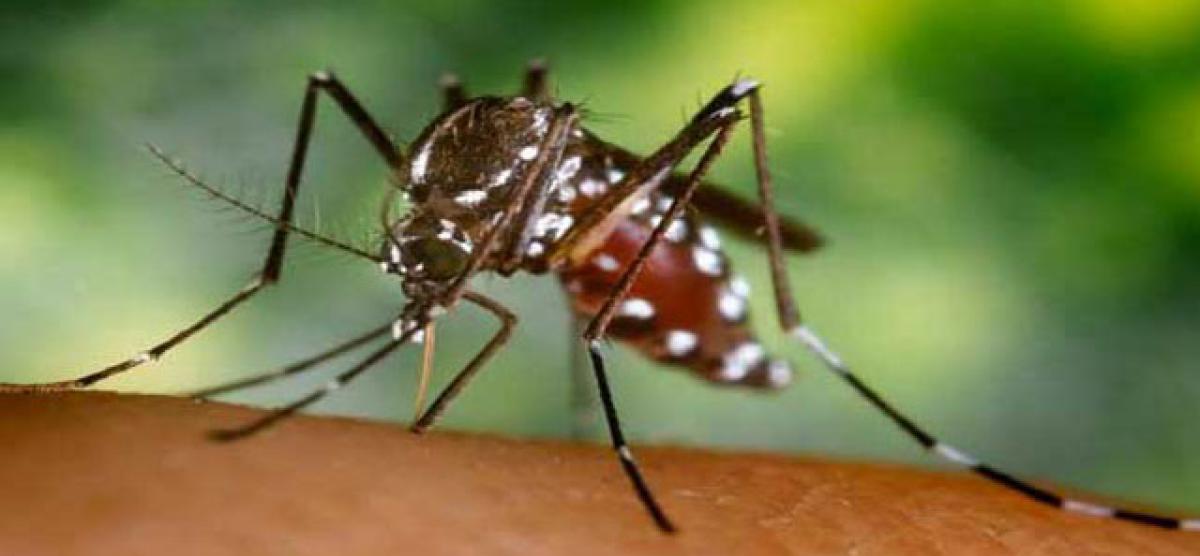Live
- Job mela at Masab Tank tomorrow
- New toilets facilitated for MPP school students
- Steps to safeguard natural springs gain momentum
- RWAs want officials to clear fog over SCB-GHMC merger
- Tanks, canals remain neglected despite execution of MGNREGS works
- BRS to celebrate Deeksha Diwas on Nov 29, Dec 9
- NCC Day grandly celebrated at SITAM
- CITU demands rollback of strategic sale of VSP
- 7-Year-old girl sexually assaulted in Tirupati
- PM Modi highlights govt's efforts to make Odisha prosperous and one of the fastest-growing states
Just In

Humans are infected when Aedes aegypti and albopictus mosquitoes, containing Chikungunya virus, bite humans. The viruses are transmitted during the mosquito bite (blood meal).
Health Pulse
How is Chikungunya virus transmitted?
Humans are infected when Aedes aegypti and albopictus mosquitoes, containing Chikungunya virus, bite humans. The viruses are transmitted during the mosquito bite (blood meal). The viruses then multiply in humans and can then be picked up by other uninfected mosquitoes when they bite infected humans to complete the viral replication cycle.
Is Chikungunya virus infection contagious?
Chikungunya virus infection is not considered to be contagious because there is no direct human to human transfer of Chikungunya viruses, so infected individuals cannot directly transfer the virus to another human because the virus has to pass through a mosquito first. However, outbreaks can occur in populations where a number of both mosquitoes and humans are infected with the virus. Rarely, the virus may be transmitted from the mother to her newborn; also, researchers suggest the virus may possibly be transferred by blood transfusions from an infected individual.
What are Chikungunya virus infection symptoms?
Most people that become infected with the virus will develop some symptoms usually within 3 to 7 days after a bite by an infected mosquito.The most common symptoms are fever, joint pain, and swelling. The affected individual also may develop headache, muscle pain, and/or rash. Most patients feel better in about seven days, but in some individuals the joint painmay last for months.
The symptoms are similar to those of another disease, dengue fever, which is also spread by the same mosquitoes. Rare complications include: eye problems, inflammation of the heart, liver, brain, skin, kidneys and nerves. Neonates and the elderly ( more than 65 years), especially those with other medical problems, are at highest risk for severe disease and complications.
How is Chikungunya virus infection diagnosed?
The Chikungunya disease may be diagnosed by blood antibody tests that distinguish between this infection and dengue fever, a similar viral disease, and other diseases. There is no medicine or vaccine available to specifically treat or prevent Chikungunya virus infections.
How can Chikungunya virus infection be prevented?
The best way to prevent Chikungunya infections is to avoid getting mosquito bites. This can be done by eliminating areas were mosquitoes breed (emptying containers where water is left standing, for example), wearing protective clothing such as long-sleeved shirts and long pants and using insect repellents appropriately.

© 2024 Hyderabad Media House Limited/The Hans India. All rights reserved. Powered by hocalwire.com







